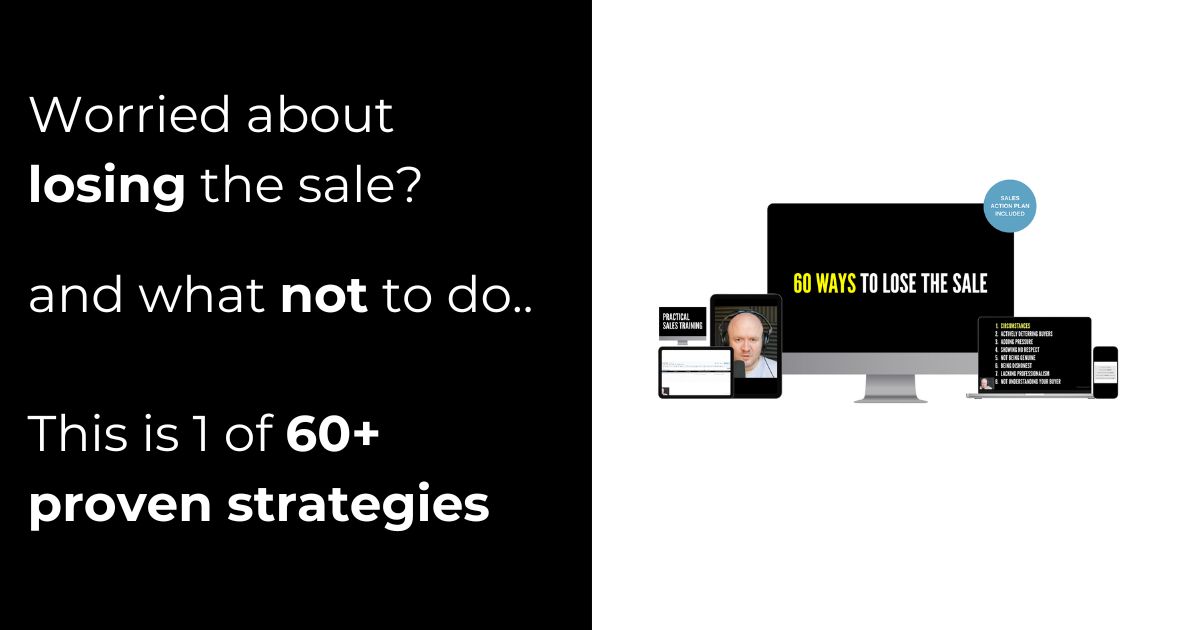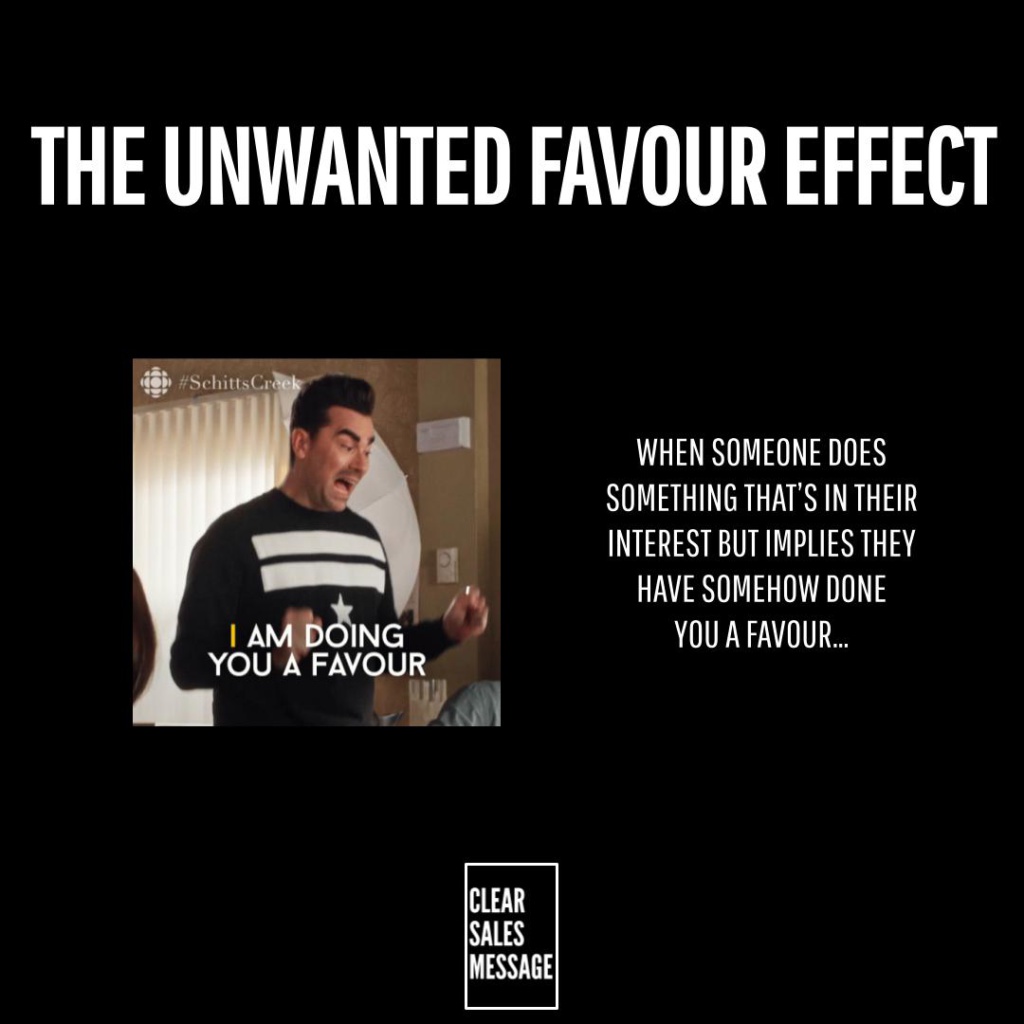Practical Sales Training™ > How To Lose The Sale > The Unwanted Favour Effect
What is it?
When a salesperson does something that is CLEARLY in their own interest, but paints it out to be a FAVOUR for you – this is when alarm bells start ringing and it just doesn’t feel right.
Why does it work?
If you want to lose the sale, then talking to your buyer as though you are doing them a favour (and thus implying they are INFERIOR in the conversation) is a great strategy.
There’s nothing wrong with favours. If you ASK for a favour and it’s granted then that can be a really helpful thing, but to be presented with something which SOMEONE ELSE deems to be a favour is something that only fools the seller. The fact is, thanks to emotional contagion (and common sense!) we can tell what someone means by interpreting more than just their words..
How can you use it?
If you want to offend your clients and make them feel inferior, then you can talk about the things you need them to do (like buy from you or attend webinars or sign up to an email list) and make it out like YOU are doing them a favour.
For example – Sales are slow for my offer and the early bird discount is coming to an end.
I could reach out to you with this message:
“I really shouldn’t do this but I’ve extended our early bird discount just for you.” (even though you didn’t ask)
We all know that early bird discounts in particular aren’t extended… unless not enough people bought, so what this message really says is: “I really need you to buy so I can give you the biggest discount possible to make the purchase as attractive as possible.”
If you want to lose clients and offend them, do favours for them that they never asked for and watch how quickly the relationship begins to fall apart
See also:



